Myanmar
The forgotten people of the Rohingya
The new government in Myanmar is just in the office. The ethnic minority of the Rohingyas hopes that their precarious situation will improve, reports Lucy Kafanov from Rahkaing.
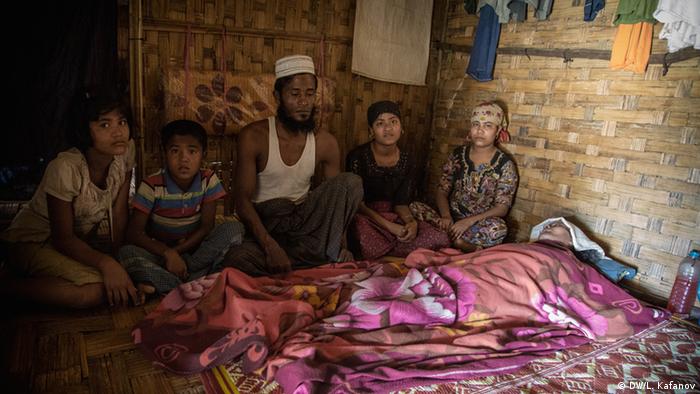
Abdul Rashid is 47 years old. Helpless, he watches as the body of his wife is shaking uncontrollably. The expression on her face indicates severe pain. His oldest daughter a damp cloth on the forehead of the mother and tries to keep them quiet. The other children hide in the corner and pray. Minutes later, the attack is over. Rukia lying unconscious on the floor. The rattling breath dominates the hut made of bamboo and straw. “I’m afraid that I’ll lose them,” says Abdul. Him tears in the eyes. “For three months, she is in this state. But we Rohingyas none except Allah.”
The 43-year-old Rukia needs a doctor. But it is not in the overpopulated displaced camp in Ohn Daw Kyi on the sidelines of the mynamarischen port city of Sittwe. Since 2012, the family of Rashid lives here. Her house was at the time, been in the case of violent unrest in the fire. The family shares the fate of many of the Rohingyas. Hundreds of thousands of ethnic minority lost after the riots their homes and life since then, under the most difficult conditions in refugee camps.
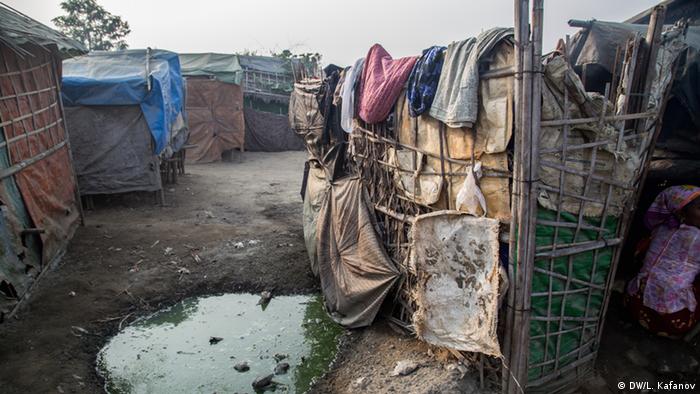
Marketed The Camp, Ohn Daw Kyi
Left behind in the democratization process
To date, the government in Myanmar does not recognise the Rohingyas as citizens, and denied them access to education and medical care. In a Koranic school next to the village of Thet Kay Pyin, children learn the Scriptures by heart. Principal Kober Ahmed teaches here also the Burmese as a foreign language. The Rohingyas even speak an Indo-European language as their mother tongue, which is Bengali related. Ahmed complains about lack of views for his 500 pupils to visit the secondary school.
The Rohingyas, according to the United Nations, “the most persecuted minority in the world” and often live in poverty. Their freedom to travel in Myanmar is limited. The young people are not allowed to register time at the neighbouring University of Sittwe.
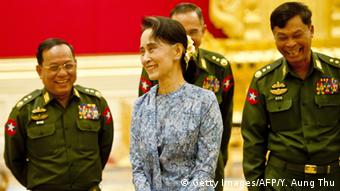
Super Minister, Aung San Suu Kyi
Escape as a last Chance
After the riots of 2012, tens of thousands of Rohingyas have tried to flee on his own authority with the boat or with the help of traffickers abroad. Many were killed. Ahmed is reported by the Deutsche Welle, twelve of his students died in 2012, at the Exodus, and a further 30 were still missing.
“We have tried to convince those impatient young people to stay here. But what can you say to them? They have neither the freedom to travel, the Chance to lead a self-determined life. You have no rights,” says Ahmed. “We hope that Aung San Suu Kyi takes the Right in our self-interest. But there is no reason for optimism. So far she has not recognised the existence of the Rohingyas.”
In the democratic process of the multiethnic state of Myanmar’s 55 million inhabitants, the Rohingya are a forgotten people. After the Nobel peace prize laureate Aung San Suu Kyi led National League for democracy (NLD) won the parliamentary elections last November and the end of March 2016, the government has taken over, hope to many that the Status of the Rohingyas will continue to improve. Many Rohingyas, the hope is that the “Lady”, as Aung San Suu Kyi in the country, the deprivation and discrimination against the Rohingyas is eliminated.
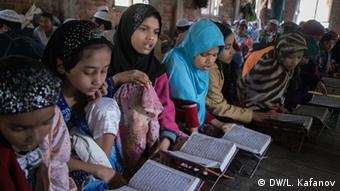
Koranic school next to the village of Thet Kay Pyin
Strong Opponents
You have the hope, although the Rohingyas elections in the parliamentary elections of 2015 entitled. “The NLD has also set up a single Muslim candidate for Parliament,” says civil rights activist Sayeed Krkani who lives in the village of Thet Kay Pyin. According to the previous government line that the Rohingya are illegal immigrants from the Muslim neighbor country Bangladesh. This is rejected by the Rohingyas vehemently. Many of them can prove that their ancestors lived for generations in Myanmar, formerly Burma.
The Rakhine Arakan National Party (ANP), which was able to win last November, most of the seats in Parliament for the Rakhine state, insists that the Rohingyas will continue to be housed in the displaced camp. To tell their own protection, members of the ANP. “These people are illegal immigrants. Their population is growing too fast and will overtake the in Rahkaing,” says Tun Aung Kyaw, General sekratär of the ANP. The fear of Alienation is widespread among the Buddhists of Rakhine state, however, the majority of the population. Aung Kyaw says: “In the Camp they receive from international organizations is very good treatments. Well, if you ask me. It is safer for everyone if you stay there.”
Watch the Video
03:26
Share
Myanmar: the hatred between the religions
Send
google+
Tumblr
VZ
Mr. Wong
del.icio.us
Webnews
Yigg
Newsvine
Digg
Permalink : http://dw.com/p/1H0jv
Myanmar: the hatred between the religions
Help is only possible to a limited extent
Rahkaing the second poorest state in Myanmar. The Region has suffered for some time under development, and will feel the Central government neglects. Travel restriction and racial segregation have led to the fact that the Muslim Rohingyas are almost exclusively by international donations. This fact has, in turn, can among the Locals in the Belief that the international organizations preferred the Muslim population.
Against this Background, some organisations, such as, for example, Doctors were asked without borders 2014 of the local government, and auxiliary services. In the meantime, you can still continue your work again, but only to a limited extent. The help for the Rohingyasist therefore, they become less and less. “The only improvements are pumping more water and toilets,” says a long-term auxiliary employee who wishes to remain due to the sensitivity of the subject, anonymous. “But when it comes to the food, medical care or education chance, it goes downhill.”
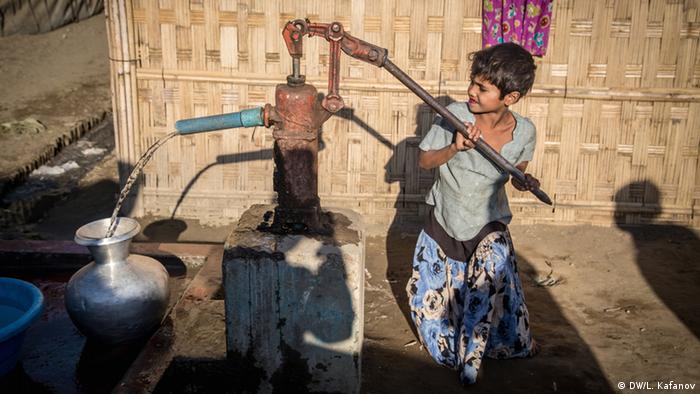
Water pumps for Rohingyas
“We have nothing more”
The world food programme of the United Nations provides food to the registered refugee camp, but there is a lack of funding for other services. Some of the desperate Rohingyas as the family, Rashid had to sell their daily rations, to be able to medicine for the mother to pay. The seriously ill and Rukia can’t go and must be moved each Time to the hospital. The journey to the nearest hospital costs the equivalent of seven Euro. There, the Doctors said Abdul’s wife, should be into the larger Sittwe General Hospital. Even if he get the permission to travel, so Abdul, he could not afford the treatment. “We have sold everything we could sell,” says Abdul, “we have nothing more.”
This report was created with support from the “International Reporting Project”.